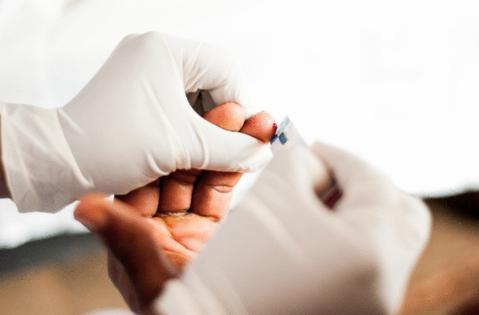HIV prevention medicines could soon be over-the-counter in Georgia
Published in News & Features
ATLANTA – Georgia lawmakers are hoping to pass a bill before the legislative session ends Friday that would allow pharmacists to distribute HIV prevention medicines without a prescription, a policy change that would allow quicker access for people who lack insurance or who live in rural Georgia.
The goal is to help bring down Georgia’s high rates of new HIV infection, said one of the bill’s sponsors, Sen. Chuck Hufstetler, R-Rome.
Hufstetler said Senate Bill 195 could help people who may not be able to see a doctor access the medicines, which can be paired with other safer-sex methods like condoms to greatly reduce the risk of HIV transmission.
“While the metro area (that I don’t live in) is my biggest concern, it will be helpful all over the state because of our pharmacists having the ability to dispense this medicine,” Hufstetler said. Both he and the bill’s co-sponsor — Sen. Kay Kirkpatrick, R-Marietta — are physicians.
Human immunodeficiency virus is the virus that, if untreated, causes acquired immunodeficiency syndrome (AIDS) and, potentially, death.
SB 195 passed in the Senate last month and is on the House of Representatives’ calendar for Friday.
In Georgia, 2,575 people were diagnosed with HIV in 2022, and 60,902 Georgians are living with HIV, according to the Department of Public Health. Nationwide, about 1.2 million Americans are living with HIV and 31,800 acquired the virus in 2022, according to health policy researchers at KFF.
The U.S. has three PrEP (preexposure prophylaxis) drugs, which are 99% effective at preventing HIV transmission but do not block the spread of other STDs or prevent pregnancy.
The bill would also allow pharmacists to distribute PEP (postexposure prophylaxis) medicines, which can be taken by those exposed to HIV to stop the infection. PEP drugs must be taken no more than 72 hours after exposure to be effective, Hufstetler said.
“In the hospital setting where I provide anesthesia, I have had a couple of colleagues receive post medicine due to an accidental stick (of a needle) in the operating room,” he said.
HIV rates in Atlanta and Georgia would fall by over 90% if everyone who needs PrEP could access it, according to the Atlanta-based Centers for Disease Control and Prevention. That would save Georgia taxpayers tens of millions of dollars, The Atlanta Journal-Constitution has reported.
Sara Zeigler, a former associate director at the CDC who now leads public health consultancy Courage Forward Strategies, says the bill will help rural Georgians the most, including rape victims who want to access PEP drugs immediately to stop a potential HIV infection.
“In rural Georgia, we are trying to leverage pharmacies,” Zeigler said. “In many communities, pharmacies may be the only health provider in a region. A victim of sexual violence might be traumatized and not want to go into a hospital — people just want to handle their business and take care of this quietly.”
She wants to see people in northwest Georgia, where rates of opioid drug use remain high, access PrEP. “It’s easier to transmit HIV in these settings. If people are pregnant, they can give birth to children who have HIV. That’s one of the many reasons why we need prevention efforts.”
PrEP drugs can be taken by anyone who might be exposed to HIV through sex, IV drug use or accidents in a hospital setting.
PrEP drugs were approved by the U.S. Food and Drug Administration in 2012, but because the first PrEP drug, Truvada by Gilead Sciences, was costly, it was used primarily by white, gay men in major U.S. metropolitan areas. In 2017, a generic form of Truvada led to the drug’s price dropping from about $2,000 a month to $23-30 a month without insurance. With insurance, the drug is free.
In subsequent years, the FDA approved two other PrEP drugs. A fourth PrEP drug is in the pipeline.
But access has remained unequal, said Leisha McKinley-Beach, a national HIV consultant and CEO of the Black Public Health Academy, which prepares Black health department employees for leadership positions.
As a result of the inequality, HIV rates in Georgia have plummeted among gay white men but have spiked among Black gay men and heterosexual Black women.
Daniel Driffin, an HIV activist in Atlanta, says the PrEP via pharmacy program should broaden access because some people who could benefit from PrEP are more comfortable discussing heath needs with pharmacists.
Driffin added: “As an additional tool for access, point-of-care testing is appropriate. By that second refill date, more sensitive testing can be done and acute infection could be caught, thus reducing the likelihood of developing drug resistance. This method helps reach people who need it the most.”
Ira Katz, pharmacist and owner of Little Five Points Pharmacy in Atlanta, said that pharmacies will be able to distribute the HIV prevention drugs after a candidate shows a rapid HIV finger prick test, which can be purchased in the store. “We are open seven days a week and ready to help,” he said.
Hufstetler said the generic PrEP options could cost as little as $23. The potential alternative? Drugs and doctors visit for a person living with HIV cost $30,000 to $70,000 annually, he added.
“This makes economic sense, as well as quality-of-life sense,” Hufstetler said.
©2025 The Atlanta Journal-Constitution. Visit at ajc.com. Distributed by Tribune Content Agency, LLC.







Comments